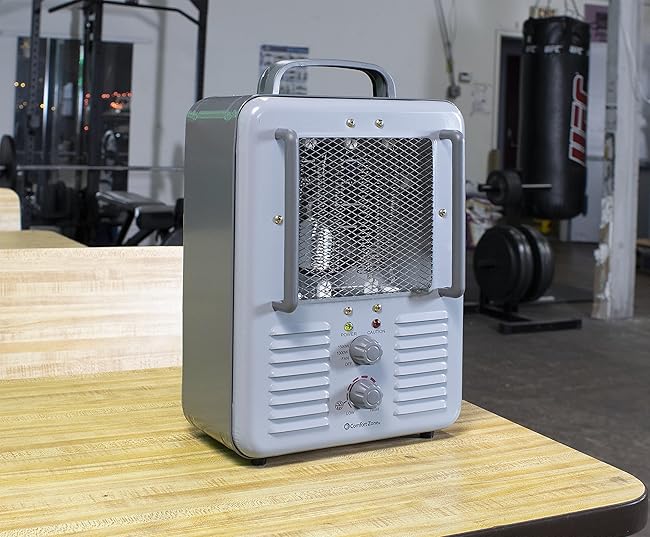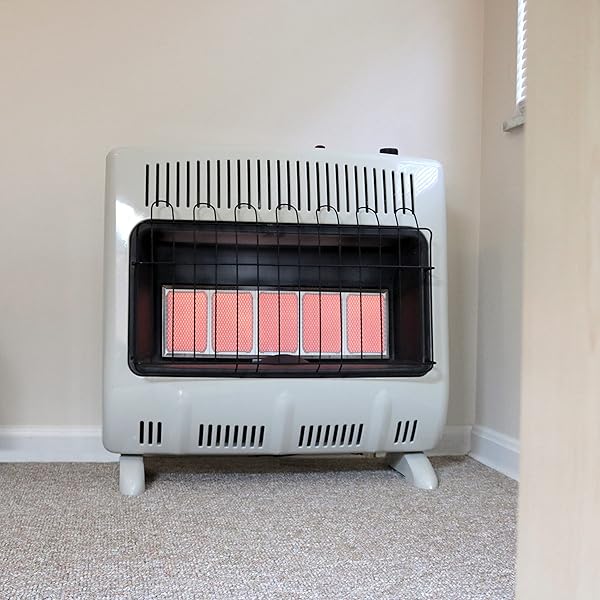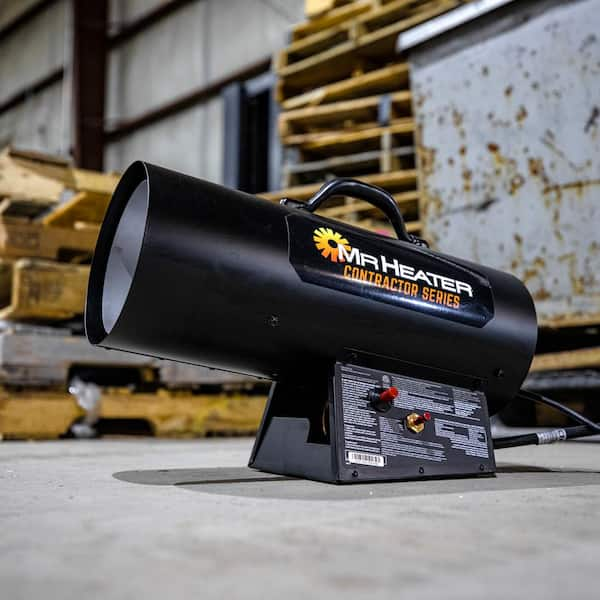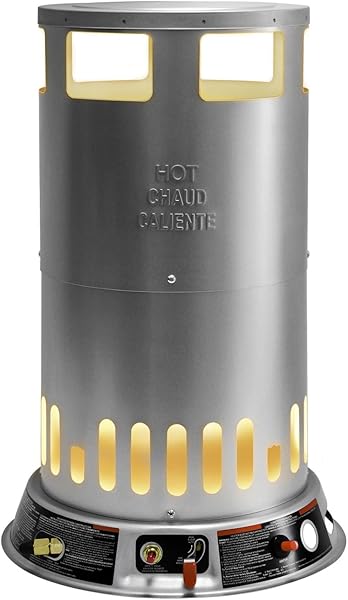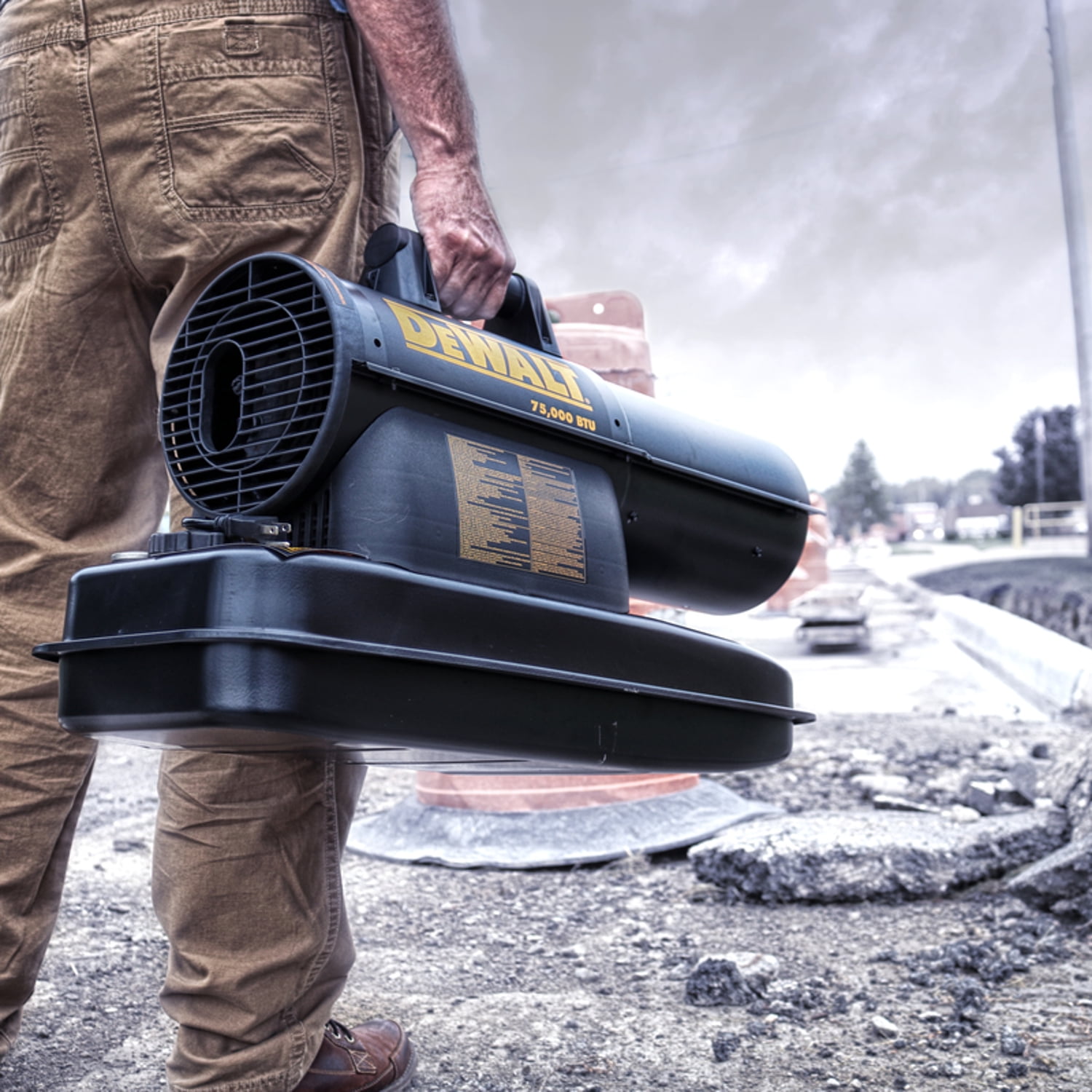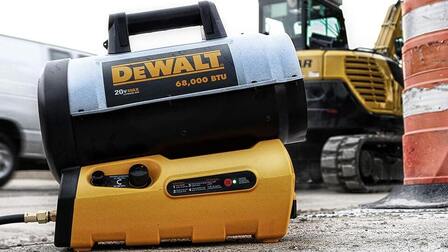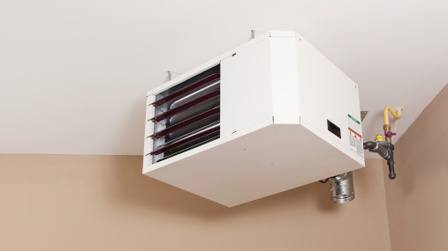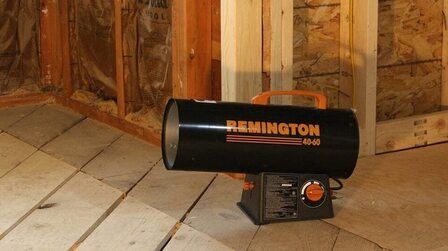Looking for a garage space heater? You’ll quickly find that the market has quite a lot to offer in this regard. Knowing how to choose the garage heater that best suits your needs can be tricky if you’ve never bought one before. There are many factors to consider, especially if you’re buying something for a more specialized purpose like a jobsite heater.
As long as you have a good overview of your requirements and take the time to compare different products properly, it shouldn’t be too difficult to find a heater that’s perfect for your situation.
Why Should You Choose The Right Type of Heater?

The size of your garage will play a major role in determining the ideal space heater for it too. Smaller areas can be easily heated by a single, small space heater. Larger jobsites and garages may require a more powerful model or even several separate heaters.
Providing adequate coverage over a large area depends on additional factors, such as the layout of the space. If there are too many objects scattered around, this may negatively impact the performance of your space heater. Radiant heaters, which are able to target specific objects over a limited distance, may be better suited for such environments.
Long-term maintenance and cost are also important factors that you’ll want to pay attention to. Some heaters require minimal maintenance and are designed to be as safe as possible when left unattended.
Others require a lot of regular work in replacing parts and other types of maintenance. And with some models, the small price tag may be misleading, because you’d end up spending a lot of money on them in the long term.
Types of Space Heater for Garage and Jobsite
Space heaters can be divided according to several factors: power source, heating method, and mounting method. Finding a good space heater for a garage is about identifying a good balance between these points.
Types of Fuel/Power Source
Space heaters can be powered in a number of different ways. Some use electricity, while others use natural gas and other fuels. Some fuel-based models are not suitable for indoor use due to the toxic fumes they produce.
1 - Electric Garage Heater
Electric garage heaters enjoy a lot of popularity and come in many different shapes and sizes. An electric heater may be hooked up directly to the power supply or use a battery.
2 - Natural Gas Space Heater
Natural gas space heaters burn gas to achieve their effect. A natural gas jobsite heater can be great for large sites that involve a lot of moving around. It can be moved easily and doesn’t take a long time to warm up the area. However, some units might start to release somewhat unpleasant smells after a while.
3 - Propane Heaters
Propane heaters are also very popular for this type of environment. There are many advantages in using a propane heater for your garage, including its odor-free operation and its efficient fuel utilization. You should be prepared to spend a bit more on the propane itself though. It can also take a while to find a suitable indoor model.
4 - Kerosene
Kerosene space heaters are a bit less popular, but still enjoy a lot of attention from professionals and home users alike. They are cheap and unobtrusive and work very efficiently.
On the downside, a kerosene heater needs a bit more attention to ensure its safe use, which may not make it the best garage heater for larger homes.
Types of Heating Method
Heaters can also be organized according to their heating method. Radiant and convection heaters use vastly different methods to warm up the room. Forced air heaters are similar to convection heaters in some regards, but they use fans to improve the distribution of air around the room.
1 - Forced Air Heaters
A forced air heater uses fans to distribute the heat produced from its internal heating elements. The actual heating is usually based on electricity. Forced air heaters can work very well in larger rooms, and they can also help you keep the air fresh since they promote constant circulation.
They get a bit noisy due to the fans, but if you need a heater for a larger jobsite or garage, that might not be a big problem.
2 - Convection Heaters
Convection heaters utilize air convection to spread warmth around the room. They warm up the air around or over the unit but don’t force it in any direction through the use of fans. Through convection, warm air rises to the top and pushes cold air down, creating a constant, slow circulation.
If you invest in a convection model, make sure you know how to clean the garage heater. Otherwise, you will eventually notice an unpleasant smell as the dust starts to build up and gets burned when you turn on the heater.
3 - Radiant Heaters
Radiant heaters are unique in their design. Through radiant heating, this type of heater only warms up the specific object(s) it’s aimed at. It produces a noticeable warming effect almost immediately, making it ideal for situations where you frequently move around and want to take the heater with you. However, you must be careful to ensure that the heater is not aimed at anything that can catch fire.
Types of Mounting Method
Some heaters are designed to be portable, while others must be installed and used in a specific place. In some cases, you might have the option to effortlessly mount the heater on a specialized fixture.
1 - Mounted/Fixed Space Heaters
Fixed space heaters are designed to be installed in a specific location, usually permanently. Moving this type of heater is often impossible without the right tools. This design is useful when you want to keep your jobsite or garage warm for prolonged periods without having to constantly move your heater around.
2 - Portable Heaters
Portable space heaters might look small and unassuming, but some models are just as powerful as their fixed counterparts. These units are perfect for large jobsites, as they can be easily moved to a new location to accommodate you through the day.
Be prepared to spend a bit more if portability is your primary concern though. Portable heaters tend to be slightly more expensive than stationary models with similar heating characteristics.
Conclusion
By now, you should have a good idea of how to choose the most suitable garage heater for your needs.
If you don’t need to make this purchase urgently, we’d advise you to take as much time as you can to research the different models on the market. Even if you already have some idea about the features you’re looking for, it can’t hurt to verify that you’re not missing out on something potentially better.
